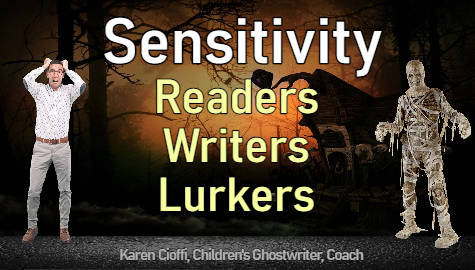I read an interesting article by Anne R. Allen about whether authors now need sensitivity readers. A sensitivity reader will go over your manuscript to find anything that might be considered offensive to someone. It could be a word, phrase, representation, or other. You would usually hire someone who can knows the subject matter and can easily depict the nuances of the particular culture you’re writing about, or the character. The sensitivity reader should also know what’s appropriate and what’s not. The reason for this type of reader is to make sure characters, scenes, and situations are accurately represented.
An article at Reedsy explains that “characters must be represented accurately without perpetuating stereotypes. This kind of reader helps by pointing out unintentionally insensitive or incorrect portrayals of race, sexuality, religion, and physical disabilities.”
Along with this, they should be able to check for language. From the article at Anne R. Allen, I learned the word “duh” is racial. You wouldn’t want to unintentionally write something that’s in anyway offensive, so a sensitivity reader may be a necessity in today’s sizzling sensitivity environment. This in essence is a good thing; no one wants to unintentionally hurt any one or a group of people. But with today’s angry social media mobs (small in size but highly agitated, ready to attack, and apparently powerful), even the slightest perceived offense that may or may not actually be offensive, it’s also a dangerous thing. And, what’s worse, as noted in Anne’s article and comments, most of the viral posts are soared into that viral momentum by people who blindly ‘share’ the posts. They don’t take the time to actually read the original ‘possibly’ offensive content that would allow them to make an educated and responsible decision as to whether to share the post or not. It seems Twitter is notorious for this. But I’m getting sidetracked. The point of this article is that while sensitivity readers are important, they can take it too far and pick your story apart to the point where it’s no longer your story. Walking Through Walls, based on an ancient Chinese tale, was published in 2012. I fear that if it were published now, it would be torn apart. While I did tons of research and the original ancient tale was given to me by a Chinese author, I’m not Chinese. Right there, I would have a strike against me. Next, the main character is a Chinese boy who through most of the story is self-serving, scheming, and selfish. If I had a sensitivity reader go over it, would they have told me I’m somehow stereotyping, even though his culture is not known for this? I’m sure someone, somewhere would have thought this. Would they have picked at the lack of contractions in the dialogue? Or, with my Planetman picture book series, might they (the social media bullies) slam the books because I don’t have any girls in it. Or might they find fault because the three superheroes are white? Or maybe a word or phrase might trigger someone’s anger? While deliberately offending or hurting someone is despicable, and obviously should not be tolerated, it now seems there are ‘invisible’ lurkers on social media who will find just about anything offensive. And their opinions and viral postings can ruin books, careers, and so on. These invisible lurkers work hard to cause any trouble they can. Where does it end? You should read the article and comments at Anne R. Allen: https://annerallen.com/2022/03/need-a-sensitivity-reader/
I’m a working children’s ghostwriter, rewriter, and coach. Let me help turn your story into a book you’ll be proud to be author of. You can send me an email at: kcioffiventrice@gmail.com to discuss your project. Or, you can give me a call at 834---347---6700. Let’s get your story in publishable and marketable shape today!
Where Does Your Story Really Start? Deep Point of View 7 Steps to Writing Success Through Positive Thinking



